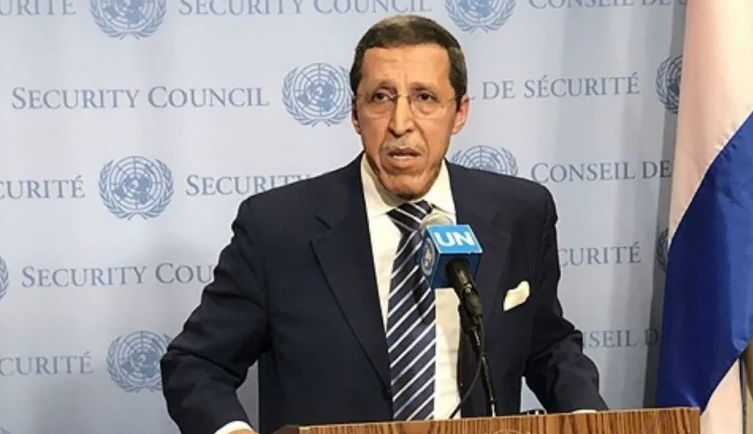In Amman, Morocco’s UN envoy called for a united front to rid the region of weapons of mass destruction. He wasn’t just speaking diplomacy—he was echoing royal intent.
Omar Hilale, Morocco’s ambassador to the United Nations, opened the 6th Conference on a Middle East free of weapons of mass destruction with a message rooted in shared values and enduring alliances. Speaking from the Jordanian capital on Monday, he made it clear: Morocco and Jordan see eye-to-eye on peace—and they’re not just talking. They’re acting.
Two Kings, One Vision for Peace
The mood in Amman wasn’t just formal—it carried emotional weight. Hilale wasn’t reading off another scripted multilateral statement. He was giving voice to what he called a “fortunate coincidence”: Morocco’s presidency of this year’s disarmament gathering, held for the first time outside the UN framework, happening right in Jordan.
That “coincidence” is no accident. It reflects the close coordination between King Mohammed VI of Morocco and King Abdullah II of Jordan, who share a decades-long bond and a reputation for moderate, pragmatic leadership in a region often caught between extremes.
Their relationship isn’t just symbolic. From joint positions in the Arab League to near-identical votes at the UN General Assembly, the Moroccan-Jordanian alliance is among the most aligned in the Middle East.
And this time, it’s focused squarely on getting rid of weapons that could obliterate the region.

A Conference Unlike the Others
This year’s conference stood out. Not just because of its location—but also because of who showed up.
Hilale confirmed full regional participation. That included Iran, a frequent lightning rod in any WMD discussion. But notably absent? Israel, the only country in the Middle East widely believed to possess nuclear weapons, though it has never officially confirmed it.
That absence loomed large.
Still, experts came from around the globe. Nuclear scientists, policy analysts, and diplomats packed the venue for a three-day series of sessions and closed-door exchanges. Some might call it a talk shop. Others see it as a rare space for raw honesty.
One official who requested anonymity said, “It’s rare to get this many countries around the same table—especially now.”
It’s Difficult, But It’s Urgent
Hilale didn’t sugarcoat the task. He said plainly: making the Middle East free of WMDs is hard. Really hard.
But he argued that now, with global tensions rising and multilateral cooperation fraying, the effort is more urgent than ever.
“You can’t build trust without diplomacy,” he said, in remarks that felt less like a speech and more like a call to reset. “Only dialogue can replace confrontation.”
He reminded the audience that five regions across the world have already established nuclear-weapon-free zones. So, why not the Middle East?
That idea might sound dreamy, even naïve. But for Morocco and Jordan, it’s not about utopia. It’s about survival.
Learning From Others, But Owning Their Path
Hilale pointed to real-world examples, not abstract ideas. He cited treaties that have already created WMD-free zones across:
-
Latin America and the Caribbean (Treaty of Tlatelolco)
-
Africa (Treaty of Pelindaba)
-
Southeast Asia (Treaty of Bangkok)
-
Central Asia (Treaty of Semipalatinsk)
-
The South Pacific (Treaty of Rarotonga)
Each of these, he said, holds lessons—but not blueprints.
“You can’t copy and paste a model,” a senior Moroccan diplomat said on the sidelines. “But you can be inspired.”
Still, the comparison raised questions about enforcement. In those regions, verification is handled by strong regional bodies. The Middle East? Not quite there yet.
Not Just About Nukes
Although nuclear weapons dominate headlines, Hilale reminded the room that WMDs come in many forms.
Chemical and biological weapons pose equal, if not greater, risks in certain scenarios. The war in Syria, for example, brought chilling reminders of how chemical agents can devastate civilians.
A Jordanian delegate said in a panel discussion: “This isn’t just a nuclear debate. It’s a humanitarian one.”
And that’s where Morocco’s framing of the issue becomes crucial. It’s not just about bombs—it’s about people. About children who want to go to school without fear. About communities trying to rebuild from war.
One diplomat from the Gulf summed it up bluntly: “We’re not trying to save regimes. We’re trying to save lives.”
Timing Is Everything
The push for disarmament comes as global institutions are wobbling. From Ukraine to Gaza, multilateralism is under serious stress.
At this point, some countries are hedging their bets. Others are doubling down on diplomacy. Morocco and Jordan? They’re in the second group.
A regional analyst in Amman said the timing of the conference was “bold, but smart.”
“With everything that’s happening—wars, elections, alliances shifting—this conference was a bet. But it seems to have paid off, at least in terms of symbolism.”
Hilale’s remarks might not change everything overnight. But the fact that they were made—loud, clear, and unflinching—is a sign of intent.
